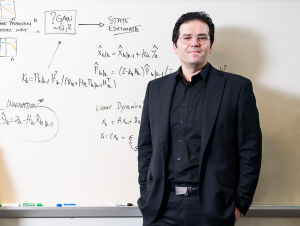Latest News
Tansu Celikel, professor and chair in the School of Psychology, is among the five Georgia Tech leaders selected for the 2026 ACC Academic Leaders Network Fellows program.
Raman is being honored for advancing chip‑scale quantum sensing technologies, while Azoulay is recognized for pioneering functional materials that enable new capabilities across science and technology.
The professors have been recognized for patenting and commercializing technologies with real-world impact.
These six faculty- and student-led startups will tackle space innovations with terrestrial applications.
Georgia Tech has appointed David Sherrill as executive director of the Institute for Data Engineering and Science (IDEaS), effective March 1. Sherrill is a Regents' Professor in the School of Chemistry and Biochemistry with a joint appointment in the School of Computational Science & Engineering. Sherrill has served as associate director for IDEaS since its founding in 2016 and as interim director since January 1, 2025.
The Plant Library enables the campus community to learn environmental concepts, unwind, and help new plants take root.
- 1 of 259
- older ›











